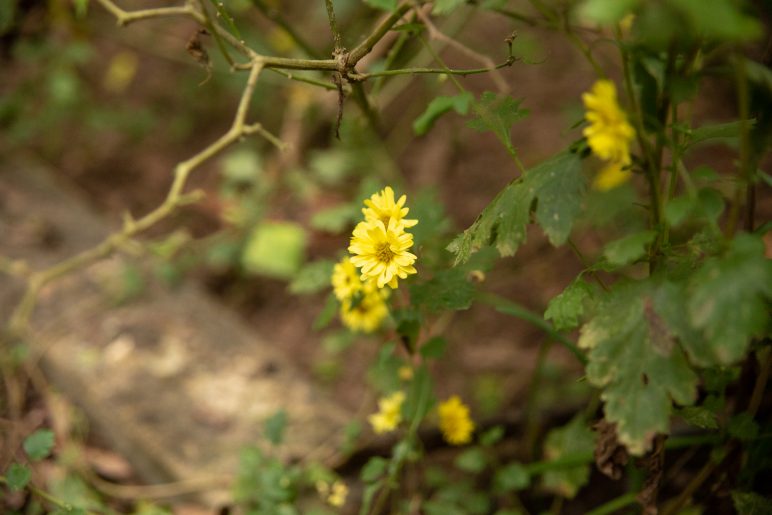Written by: Janice Cheng (Participant of CEDAR’s 2018 Exposure Trip to Thai-Burmese border and northern Thailand, church pastor)
“All things bright and beautiful, all creatures great and small.
All things wise and wonderful, the Lord God made them all.”
These are lyrics from a classic children hymn called All things bright and beautiful. I looked it up on the internet, you will discover the songwriter’s intention was to explain the first sentence of the Apostles’ Creed, “I believe in God, the Father Almighty, creator of heaven and earth.”
Participants of this trip to Thai-Myanmar border came from all walks of life, including rookies in the workplace, retired people, pastors, Christian organisation’s staff, and seminary teacher. This combination enriched our reflections, discussions, and consolidation of faith during the trip.
Upland Holistic Development Project (UHDP) was the second organisation we visited. UHDP’s major servicing group is the vulnerable hill tribe community in the Golden Triangle, made up of impoverished and stateless ethnic minorities. UHDP teaches them about sustainable agricultural methods and garden farming techniques, so that they can provide for themselves and maintain their basic needs. Furthermore, UHDP promotes the concept of Creation Care. Creation Care was one of the issues stated in The Cape Town Commitment in the Third Lausanne Congress. As the term implies, caring for the creation means that when Christians love God, they should also love God’s creation. Therefore, when Christians use natural resources, they should use them mindfully according to God’s principles.
From another point of view, Creation Care was part of the gospel. When Christians understand the salvation of Jesus Christ as a reconciliation between human beings and God, He was also reconciling the relationship between human beings and the damaged creation.
Amid our trip, we were accommodated in UHDP’s farmhouses and experienced life in the farm. We learned to use natural materials like bamboo and banana leaves to cook. And we learned to make organic pig feed by mixing banana tree and waste from sugar factories. We also learned to use natural compost in farming.
All these facilitate the practice of Creation Care. We visited Tui’s home, a staff from UHDP, and he brought us to his farm and told us how his family moved from the city back to the nature for simple lifestyle and how they learned to resume stewardship of managing the land. When they first came to this piece of farmland, their neighbours were farming with chemical fertilisers, but Tui and his family insisted to farm with environmental friendly methods. They did not harvest much at the beginning, but as time goes by, their farm had a good rest and was well ploughed. Their produce was very strong and healthy. Meanwhile, their upholding belief in organic farming was subsequently accepted and learned by their neighbours.
Tui has a rice field, which is very different from others. Other farmers normally harvest two to three times a year, but Tui only has one harvest, because they do not want to exploit their land. Although they only have one harvest a year, their rice grains look full and healthy. Besides, the amount of harvest provides sufficiently for Tui’s and four other relatives’ families. Tui emphasised that these were all blessings from God.
During the few days living in farmhouses, the wise resource utilisation model visualised the operation of the Garden of Eden in the Old Testament to us—when Adam and Even freely used different kinds of natural resources to live, and the used natural resources returned to the nature, became part of the eco-system again and nourished the land. This was the beautiful world that our Father God initially created.
Following industrialisation and modernisation, humans have over-developed and abused all resources on earth, followed by pollution and damages to the ecological system. Our beautiful world has twisted and lost its colour.
As city people, we generate a lot of wastes every day, especially when we order take-away food, drinks, go shopping, and buy groceries. Every consumption process generates garbage. In every festival, we also produce an enormous amount of wastes in parties and gifting. We are fond of convenience and avoid troubles that we put the responsibility of Creation Care aside. In church’s teaching, we belittle this important issue that we seldom teach brothers and sisters the significance of mindful use of our natural resources. Even in church’s operation, the amount of wastes generated multiplied that at home. These are what we have to reflect on. As mentioned above, we cannot avoid producing waste in our life and consumption process. It may be a difficult thing to cut down our waste to zero, but we should still learn and be mindful about reducing wastes and reusing resources. And the motivation to take action in waste reduction is to unveil the initial beauty of the world God created.
May we be more aware of Creation Care and practise together. We do not have to require ourselves of 100% achievement. It is already wonderful if we can take our first step!
I’m sharing McDull version’s All things bright and beautiful, most familiar to Hong Kong people.
Other resources:
Lausanne Movement’s Creation Care and the Gospel: Jamaica Call to Action








